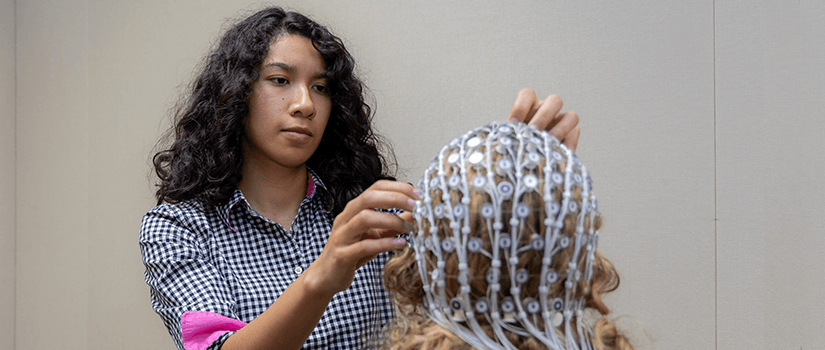Did you know...
Health-related careers are expected to make up 45 % of all new jobs in the next 10 years. Our programs prepare you for these careers, whether you want to provide frontline patient care or conduct research to help find the next cure.
Academic Programs in Health Sciences
Our undergraduate programs provide research and clinical experience early on and offer ideal majors for students preparing for medical school or other health professions. Our graduate programs provide opportunities for advanced study and in-depth research related to health and can open doors to additional career options.
-
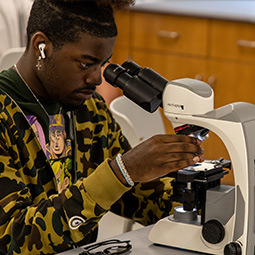
Biological Sciences (B.S., M.S., Ph.D.)
Study the building blocks of life and health.
-
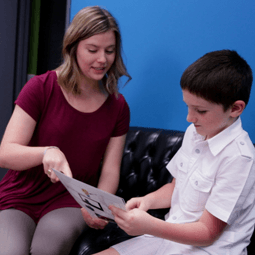
Psychology (B.S., B.A., Ph.D.)
Promote mental health for individuals and communities.
-
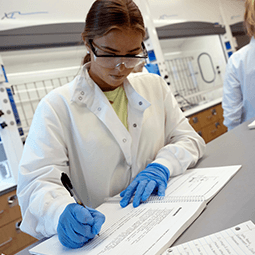
Biochemistry and Molecular Biology (B.S.)
Explore how chemistry intersects with life.
-
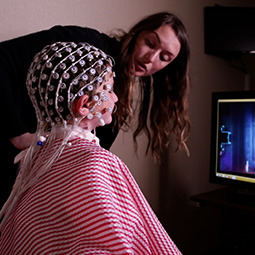
Neuroscience (B.S.)
Focus on the brain and neurodevelopment.
-
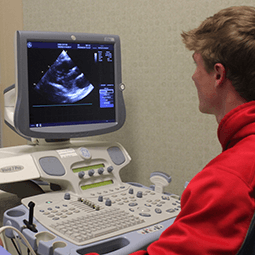
Cardiovascular Technology (B.S.)
Prepare to join a heart health clinical team.
-
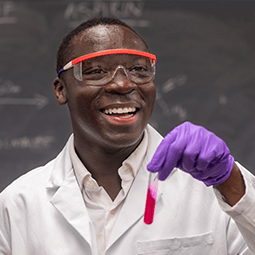
Chemistry (B.S., Ph.D.)
See how chemical reactions shape health.
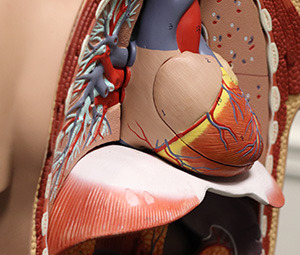 100% job placement in heart health
100% job placement in heart health
The B.S. in Cardiovascular Technology leads to a 100 percent employment rate for graduates who pursue becoming cardiac sonographers. The broad education obtained in a B.S. prepares these graduates for leadership and promotions in their careers.
Other CVT graduates pursue medical school or other forms of graduate study.
Health Sciences Research
Outside of the classroom, we advance health sciences through research from the smallest unit of cells to the far-reaching consequences affecting entire communities. Our scientists explore the inner mechanisms of disease, the diagnosis and intervention for neurological conditions, the dynamics of social and emotional well-being, and more.
Health Science Research Centers
- McCausland Center for Brain Imaging
- Institute for Mind and Brain
- Research Center for Child Well-Being
- Carolina Autism and Neurodevelopment Center
Research Spotlights
- Sayward Harrison (Psychology) developed South Carolina’s first doctoral emphasis on treating substance abuse disorders.
- Kathryn Luchok (Women’s and Gender Studies) studies where South Carolina’s birth care resources are missing.
- Psychology faculty created a program to train K-12 school employees and volunteers in South Carolina in how to support mental health for their students.
- Yi Sun uses mathematical models to support research in biomedical engineering and public health.
- Mapping the brain may find ways to help stroke patients regain their ability to speak.
- The genetics of bacteria in the human gut could help us better understand the connection to health.
